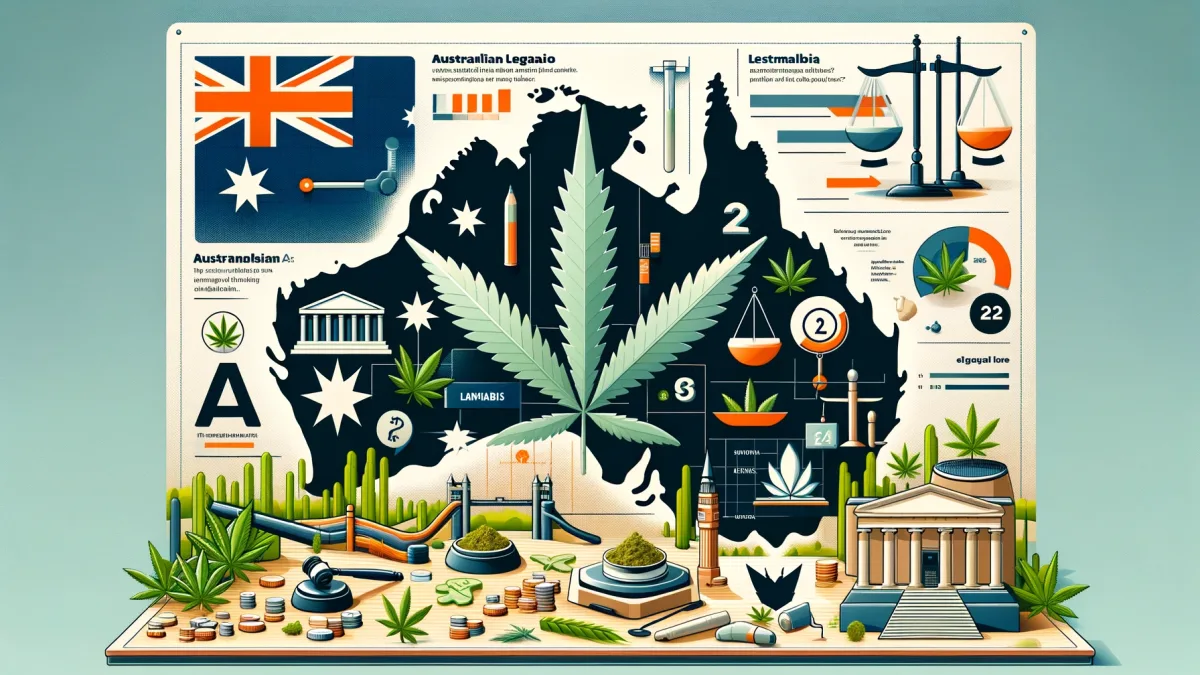G’day, mates! Whether you’re a local looking for clarity or an international observer curious about the “green” laws down under, you’ve probably wondered about the legal status of weed in Australia. It’s a topic that’s sparked debate, reform, and a fair bit of confusion. So, let’s roll up our sleeves (not the joints just yet) and dive into the nitty-gritty of cannabis laws in Australia, keeping things light and conversational.
A Patchwork of Policies: Cannabis Laws Across the States
Australia’s approach to cannabis is as diverse as its landscapes, with laws varying significantly from state to state. Here’s a brief rundown:
ACT: A Trailblazer in Cannabis Legalization
The Australian Capital Territory (ACT) made headlines in September 2019 when it became the first—and, so far, only—Australian jurisdiction to legalize the possession and cultivation of cannabis for personal use. As of 31 January 2020, residents in the ACT can possess up to 50 grams of dry cannabis and grow up to two cannabis plants per person, with a maximum of four plants per household. But before you think Canberra is the new Amsterdam, note that selling cannabis, sharing it, or using it in public remains a big no-no.
Other States: Decriminalization and Medical Use
While the ACT might be leading the charge on recreational use, other Australian states have adopted more cautious stances, focusing on decriminalization and medical use:
- South Australia and the Northern Territory have decriminalized minor cannabis offenses, opting for fines and diversion programs over criminal charges.
- Medical Cannabis: Nationwide, the Therapeutic Goods Administration (TGA) has approved the use of medicinal cannabis under specific conditions since 2016. Patients with certain medical conditions can access cannabis treatments, but it’s a tightly regulated process involving doctors, specialists, and sometimes, the TGA’s special access scheme.
The Great Debate: Legalization vs. Decriminalization
Australia’s piecemeal approach to cannabis legislation mirrors a global debate on the best path forward. Proponents of legalization argue that it eliminates the black market, ensures product safety, and generates tax revenue. On the flip side, opponents raise concerns about public health, addiction, and the social implications of mainstreaming cannabis use.
The Road to Reform: Challenges and Considerations
As Australia navigates its relationship with weed, several key challenges and considerations emerge:
- Federal vs. State Laws: The interplay between federal and state legislation complicates nationwide reform. While states can enact their policies, they must navigate a complex web of federal laws and international treaties.
- Public Health: Any move towards broader legalization or decriminalization must carefully consider public health implications, including potential increases in use, addiction, and mental health issues.
- Law Enforcement: Changing cannabis laws requires rethinking law enforcement priorities, training, and resources, especially concerning drug driving and underage use.
The Future of Cannabis in Australia: A Hazy Outlook
As we look to the future, it’s clear that the conversation around cannabis in Australia is far from over. With global attitudes shifting and more countries embracing legalization, Australia may well revisit its stance on weed. The key will be finding a balance that protects public health and safety while acknowledging the changing social and legal landscape around cannabis use.
Conclusion: A Budding Conversation
The legal status of weed in Australia is a complex tapestry woven from diverse state policies, federal regulations, and ongoing social debates. Whether you’re for or against the legalization of cannabis, it’s an issue that requires thoughtful discussion, informed by legal expertise, public health data, and a dash of empathy for those whose lives it directly affects.
As the conversation continues to evolve, staying informed and engaged is crucial for anyone interested in the future of cannabis laws in Australia. So, keep an eye on the news, talk to experts, and, most importantly, don’t be afraid to contribute to the debate. After all, change often starts with a simple conversation.









Leave a Reply